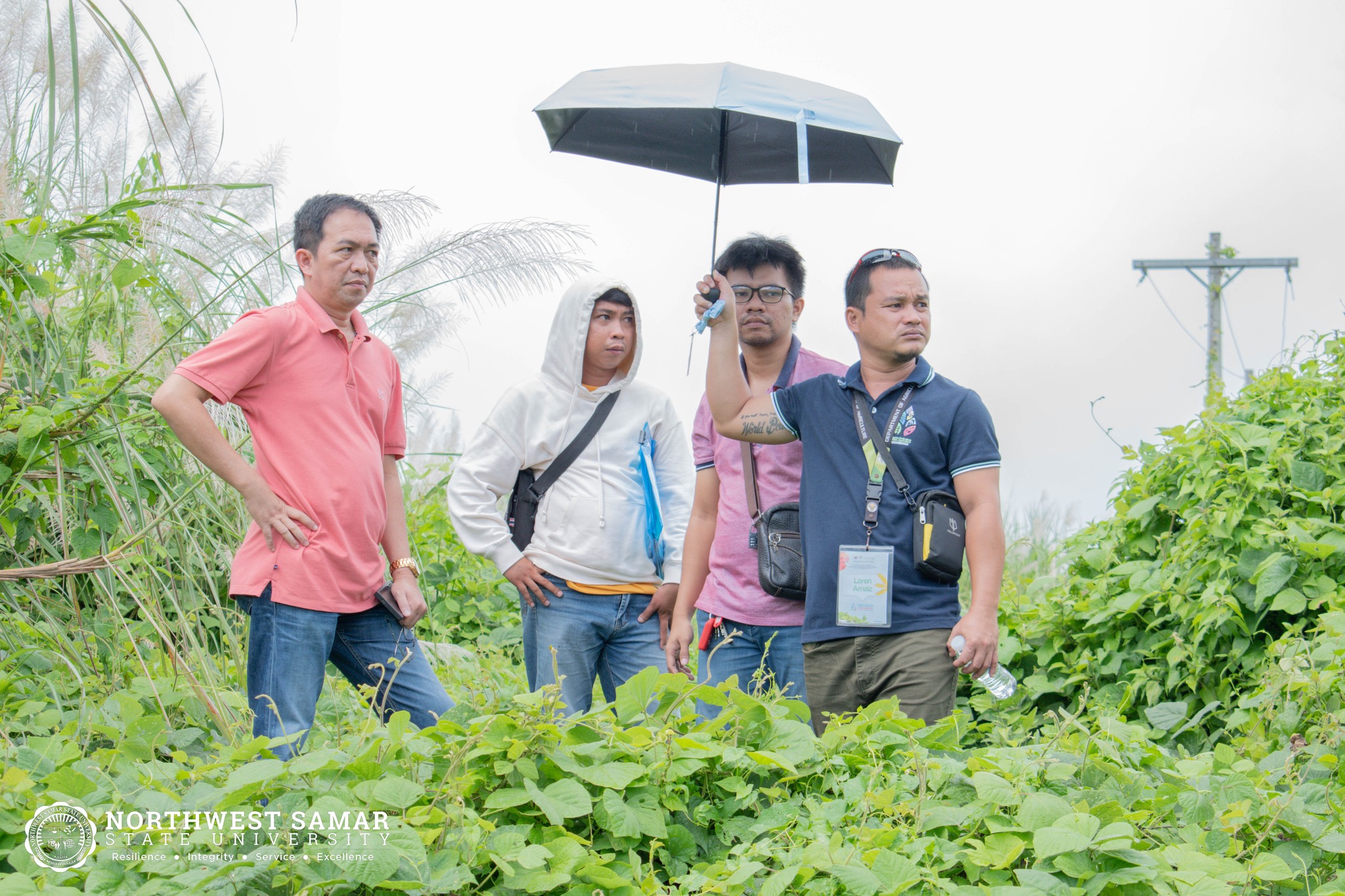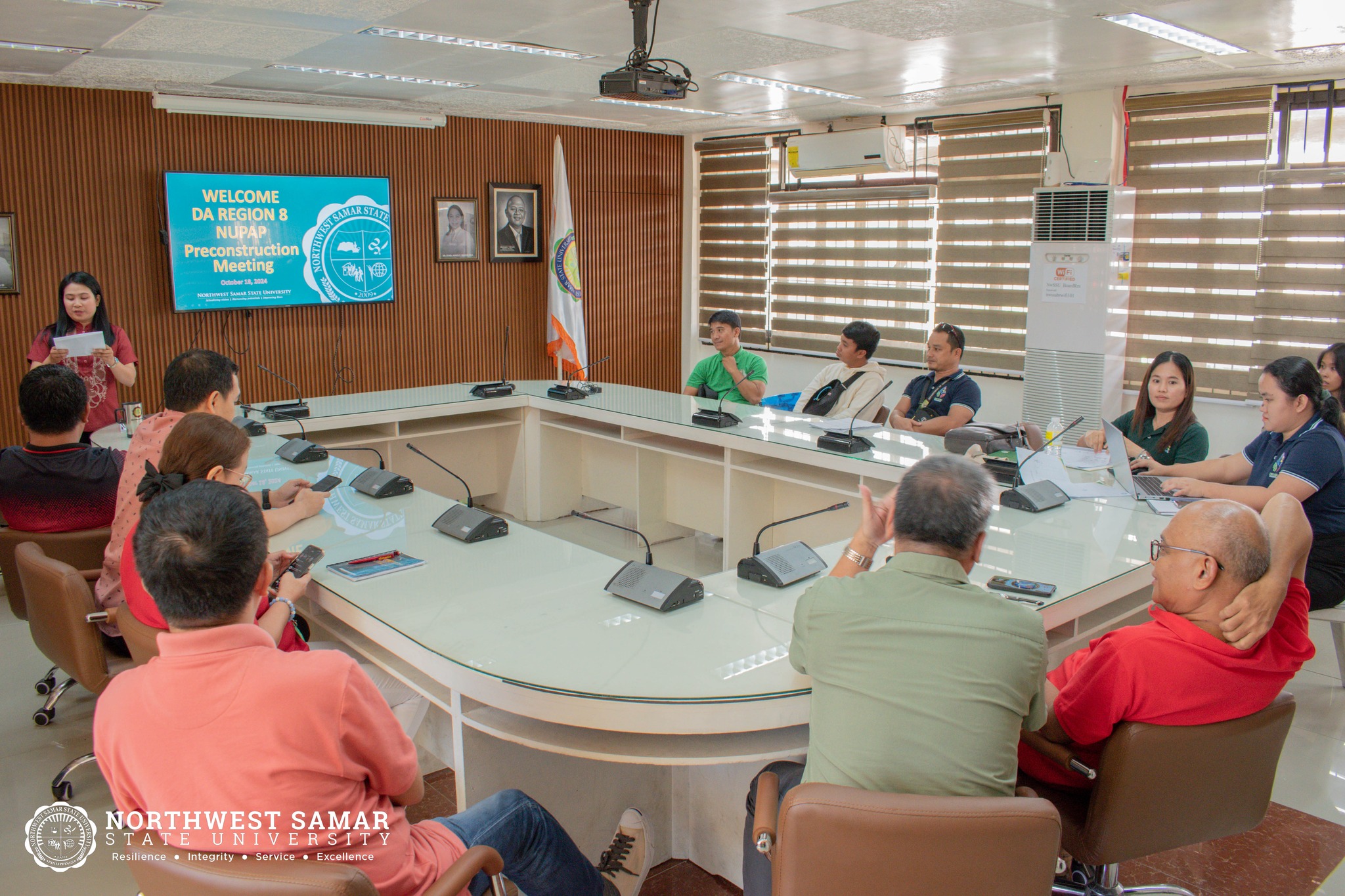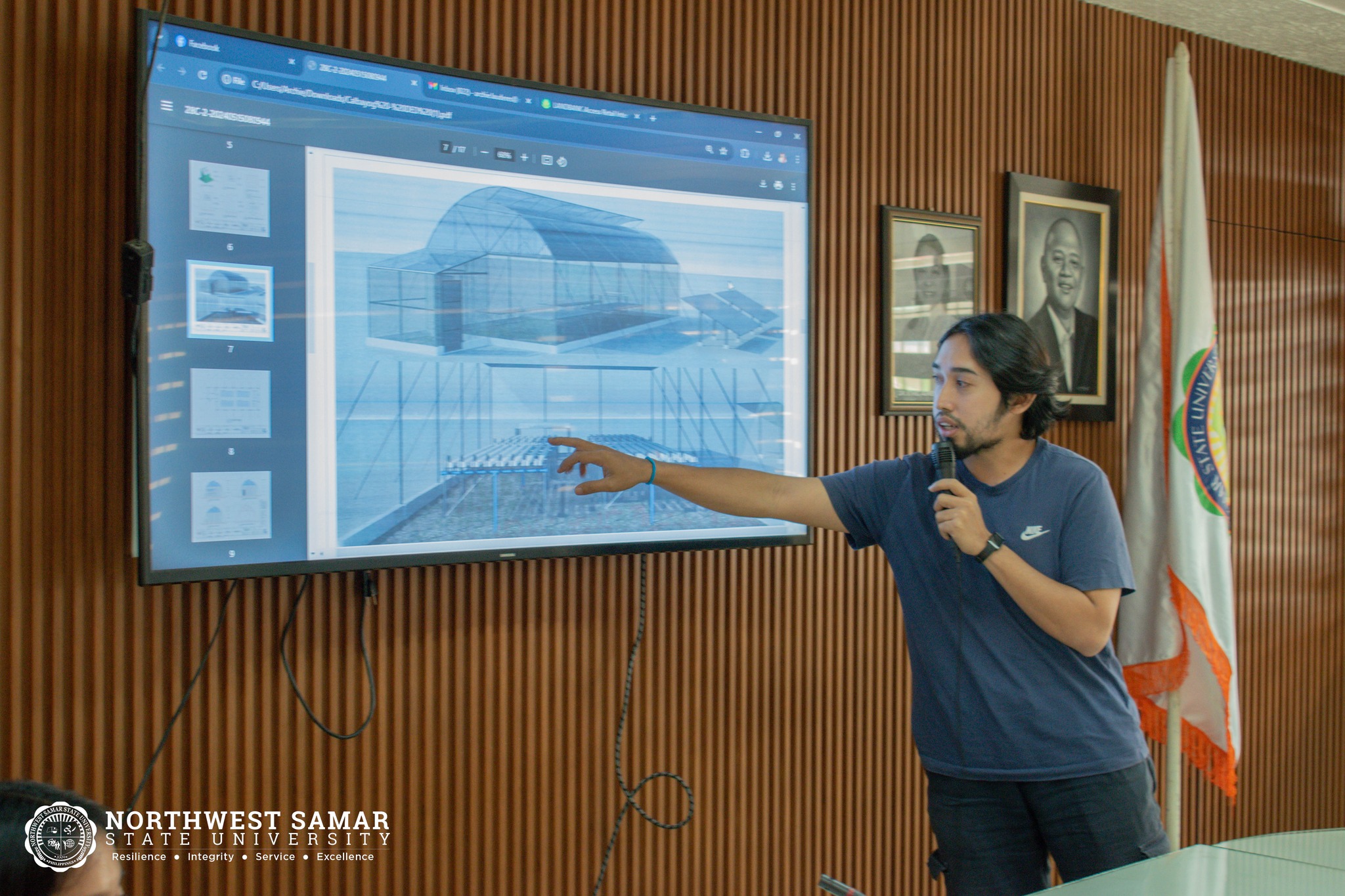Posted on by Joseph Renor Obrino
Post Views: 155

The National Urban and Peri-urban Agriculture Program (NUPAP) has achieved a significant milestone with the preconstruction meeting for a new hydroponics facility, featuring solar panel technology, valued at 1.6 million pesos. This upgrade aims to enhance laboratory resources for the Bachelor of Science in Agriculture and Bachelor of Agricultural Technology programs at Northwest Samar State University.
In addition to educational purposes, the hydroponics facility is intended to serve as a hub for production, research, and extension services. An area validation was conducted during the meeting to confirm the site’s readiness for this innovative endeavor.

The meeting brought together key university officials, including Dr. Benjamin L. Pecayo, University President; Engr. Rhio C. Dimakiling, VP for Administrative Affairs; Dr. Riz Rupert Ortiz, VP for Research, Innovation and Extension; Dr. Ramil S. Catamora, VP for Academic Affairs; Engr. Marlon Sobreviga, Director of NwSSU’s Infra-Development Office; Dr. Rosalia Briones, Dean of the College of Agriculture and Technology; and faculty members from the Agriculture and Food Technology departments.
Also present were representatives from relevant agencies, including Mr. Gerard Conge from the City Agriculture Office and several members from the Department of Agriculture (DA) Region 8: Mr. Loren Joseph Arnaiz, NUPAP Coordinator; Ms. Judith A. Mendoza, NUPAP Focal Person; Mr. Jason Fabillar, APCO Samar Area; Ms. Iamie P. Cantilang, Project Assistant 3; Engr. John Rey Laurente; Engr. Joyce Ultras; and Engr. Krystel Denice L. Labrador.

Through this initiative, NwSSU aims to establish itself as a training center for hydroponics technology, equipping local farmers in Calbayog with essential knowledge and resources. This project promises to enhance research opportunities for both faculty and students while also generating additional income for the university through various income-generating projects (IGPs).
As NwSSU invests in modern agricultural practices, this facility represents a crucial step toward sustainable urban agriculture, benefiting both the university and the broader community.



